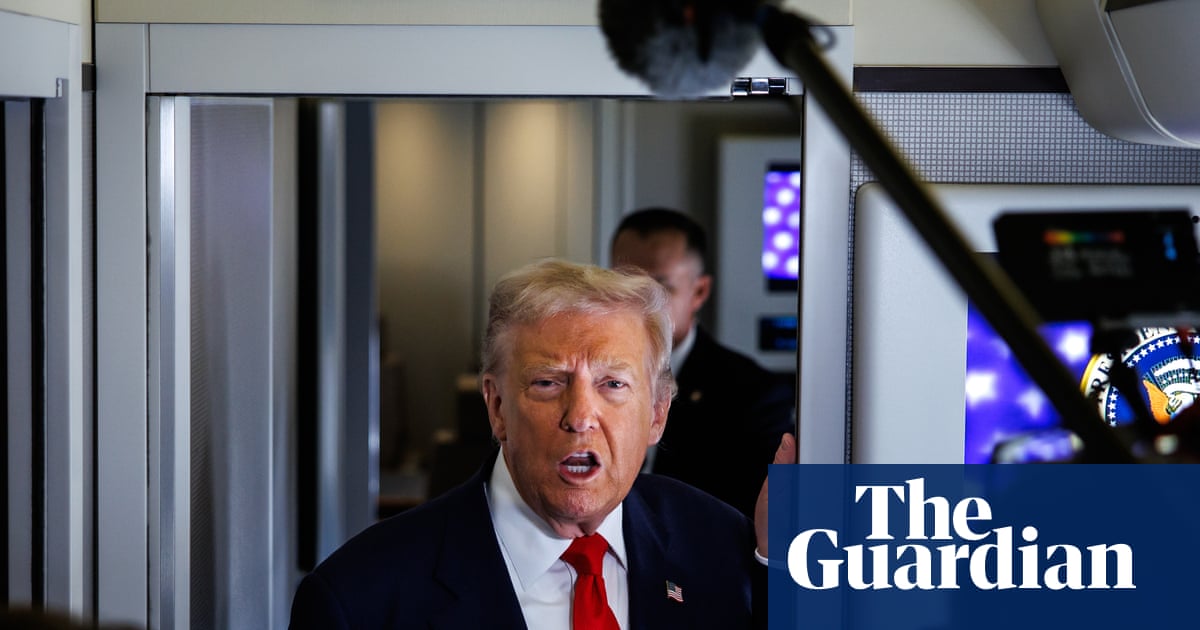The following is the transcript of the interview with Rep. Dan Crenshaw, Republican of Texas, that aired on "Face the Nation with Margaret Brennan" on Nov. 2, 2025.
MARGARET BRENNAN: Welcome back to "Face the Nation." We turn now to Texas Republican Congressman Dan Crenshaw, who joins us this morning from Humble, Texas. Welcome to "Face the Nation."
REPRESENTATIVE DAN CRENSHAW (R-TX): Thanks for having me.
MARGARET BRENNAN: Congressman, I know you've been in and out of Washington, but largely that the House members have not been here in town. The House hasn't voted since September 19. It will be the seventh consecutive week now that they've been working from home. Would you urge Speaker Johnson to bring everyone back to try to break the impasse over government funding?
REP. CRENSHAW: It's up to the Speaker. House Republicans and House Democrats coming back to Washington, will not break the impasse. Let's not forget that the House passed a clean CR. It was a temporary CR, okay. And you know, Democrats keep saying the Republicans have no intent to negotiate. We can't trust them to want to negotiate if we reopen the government. That's nonsense. If we had- look, if we had passed a year-long CR, I think they could make that argument. That's usually an indicator that we really don't want to talk about the budget right now, we want to- we want to keep the can down the road for a year. But when you pass a very short term duration CR, a seven-week one, it is a clear indication that we intend on continuing those conversations. So look, there's other things we could do. The reason I keep going back is because I work on the Intelligence Committee, and I have to do that work from inside DC. There's a number of reasons people go back. But look, in the end, the Senate has to deal with this, and Senate Democrats just have to reopen the government. It's that simple. They voted- I don't even what is it, 15 times now, to keep it closed. They wouldn't even vote to keep federal workers paid. That was a crazy lifeline that Senator Thune gave them, allowing them to vote, almost have the easy way out, allow them to at least vote to take the pain off of federal workers. And they voted that down too. I really don't know what their strategy is at this point. They're the ones that need to figure this out.
MARGARET BRENNAN: So, you heard- perhaps you heard Senator Warner at the top of the program say, you know, conversations are happening this week. He was hoping that there would be some- some end. On your side of the- of the Capitol. You're saying you don't see signs of this ending this week?
REP. CRENSHAW: Don't see what- sorry, yeah- I don't, I don't see us going back into session. I think we would have been notified by now. Yeah, but again, the impasse is not in the House. You know, we passed it out of the House--
MARGARET BRENNAN: -- Understood-- but to come to an agreement, which is was- the senator was talking about everyone getting together and going to the White House with the President to hammer this out. The speaker, at least, it doesn't sound like you have that level of optimism. But let's talk about the impact where you are. Your district includes parts of Houston. We checked the numbers, and it appears 350,000 Houston area families may have some difficulty with their food stamps, these SNAP benefits because of the standoff. Have you gotten any guidance from the state or from the administration about whether people get food payments this week?
REP. CRENSHAW: Well, from what I can tell from the administration's statements, I mean, they're going to try to use the emergency contingency fund for- on a temporary basis. But look the entire- I think there's about $6 billion in that fund. The monthly SNAP benefits cost Americans $9 billion so that's- that is a very, very small band aid. And the only way you're going to get SNAP benefits back on track is if Democrats vote for our clean CR. I visited a food bank recently. Yeah, they're preparing for a huge influx in demand. You know, the state can only do so much on this. We- all of us can only do so much there's- there's a really simple solution to this, which is just keep the government open and you know, you want to negotiate this very complex health care issue, which is what Democrats say they want. I think they kind of chose it out of- randomly, and all of a sudden decided throw this temper tantrum. But fine, let's negotiate it, but you have to do it with the government open and not hold- you're not holding a gun to our heads. You're holding a gun to the regular American people's heads.
MARGARET BRENNAN: You are on the Intelligence Committee. You mentioned you had, have had to come back here to view what I assume is classified intelligence. The President confirmed a few weeks back that he had authorized some CIA activity in Venezuela, he didn't give detail on that, but have you seen any evidence that the US pressure campaign on Nicolas Maduro is working, that all this military hardware that's being moved around into the region is doing something?
REP. CRENSHAW: I can only tell you what I can assume, having been out of session, we aren't getting the briefings because- because we aren't there. One of the reasons I keep going back is to look into these things. The broader question- this is more of a geopolitical question, is the pressure campaign working? Well, look, deterrence almost always works, especially when you're dealing with- with dictators like Maduro. They only listen to one thing, which is power. And Venezuela has been largely left alone by American administrations. The western hemisphere has been left alone, and I think this President is taking it much more seriously. Look, the Venezuelan government is a, it's- it's- it's a fake government, right? He ran a rigged election. Everyone knows that it's propped up by the Cubans and by the Russians. They have been in collusion with terrorist groups like the FARC for years. It has been an annoyance to countries like Colombia for years. There's many high-level ranking officials in government- in Venezuelan government that are literally under indictment for drug trafficking. It is effectively a narco-terrorist state--
MARGARET BRENNAN: -- But Maduro is still in power--
REP. CRENSHAW:-- Maduro, what? Sorry--
MARGARET BRENNAN: But that he still is in- in power. That's what we were just talking about that with Senator Warner. The- the need for more information to go to lawmakers about exactly what the extent is going to be of US military involvement. Would you support US land strikes in Venezuela?
REP. CRENSHAW: Actually boots on the ground in Venezuela?--
MARGARET BRENNAN: -- Land strikes--
REP. CRENSHAW: -- I think we would have to have to have a longer conversation about doing something to that extent. But I think what the- what the President is doing right now is very much within rational legal means, looking at drug boats that we have- people ask, do we have the intelligence to really know what these drug boats are and who's on them? Yes, we do. That I can say, right. We have multi-source intelligence that- so we know for sure what we're- what we're- what we're actually shooting at, and we don't even shoot at all the targets. And people say, well, why can't you just interdict it all? And I say, well how many boats do you think we have? How many boats and helicopters do you think you have? And you know how risky an interdiction operation is? You're going to people- put people's lives at stake. And you know, we've been doing that for years, and it hasn't worked. So, you do need to try something new, because it is an imminent harm to the United States, and that's clearly within the President's authority under Article Two. So, I don't wring my hands over what's going on right now. Talking hypotheticals about invading Venezuela. I mean, that's not really what we're talking about right now.
MARGARET BRENNAN: No- no, I was asked about land strikes. But- but let me ask you about something some of your fellow conservatives have been talking quite a lot about including Mitch McConnell, he's been concerned about antisemitism. On the right, Senator Ted Cruz of Texas said he's seen more antisemitism in the past six months than in his entire life. Take a listen.
(START SOUND ON TAPE)
SEN. TED CRUZ: "This is a poison, and I believe we are facing an existential crisis in our party and in our country. ///// If you sit there with someone who says Adolf Hitler was very cool and that their mission is to combat and defeat global Jewry, and you say nothing, then you are a coward, and you are complicit in that evil."
(END SOUND ON TAPE)
MARGARET BRENNAN: He was specifically referring there to a widely watched interview Tucker Carlson did with far-right commentator and Holocaust denier Nick Fuentes. Do you share Senator Cruz's concern about your party?
REP. CRENSHAW: Oh, yeah. Mr. Cruz, put it pretty well. I've had a long-standing feud with Tucker Carlson. I'm glad everyone else is- is also waking up now to how bad of a person he is. He's changed a lot over the last 20 years. You know, hard to say why, but it doesn't really matter why. I mean, you have a guy like Fuentes on your show, you're- you're uplifting what is a guy who has really fallen off the radar. You know, he- he used to send his followers to my events and try to ask me a bunch of questions about the Jews and Israel support and all that, and try to disrupt events. And they would try to infiltrate the MAGA movement. You know, they were really on a downhill slide. And for Tucker to have him on- Senator Cruz is exactly right. And this idea that we have to, you know, that it's cancel culture, if we- if we- if we- if we keep Tucker out of our circles from now on, is just nonsense. I literally wrote a book on cancel culture. So, you know, I've thought deeply about this. Cancel culture means you're- you're canceling someone for what is basically a mainstream belief, or maybe- maybe a small, like, honest mistake they made that would be maybe considered cancel culture. It's not cancel culture when you say, look, I want to disassociate myself from you because your beliefs are crazy and you're psychopathic and you're- you are falling apart in front of everyone. You know this disassociation is not canceling anyone, and I know some have suggested it is. So, I think moral- moral clarity is a lot more important in this case.
MARGARET BRENNAN: Congressman Crenshaw, we have to leave it there. Thank you for your time this morning. We'll be right back.
These United States: Ken Burns on America's continuing revolution

 German (DE)
German (DE)  English (US)
English (US)  Spanish (ES)
Spanish (ES)  French (FR)
French (FR)  Hindi (IN)
Hindi (IN)  Italian (IT)
Italian (IT)  Russian (RU)
Russian (RU) 























Comments